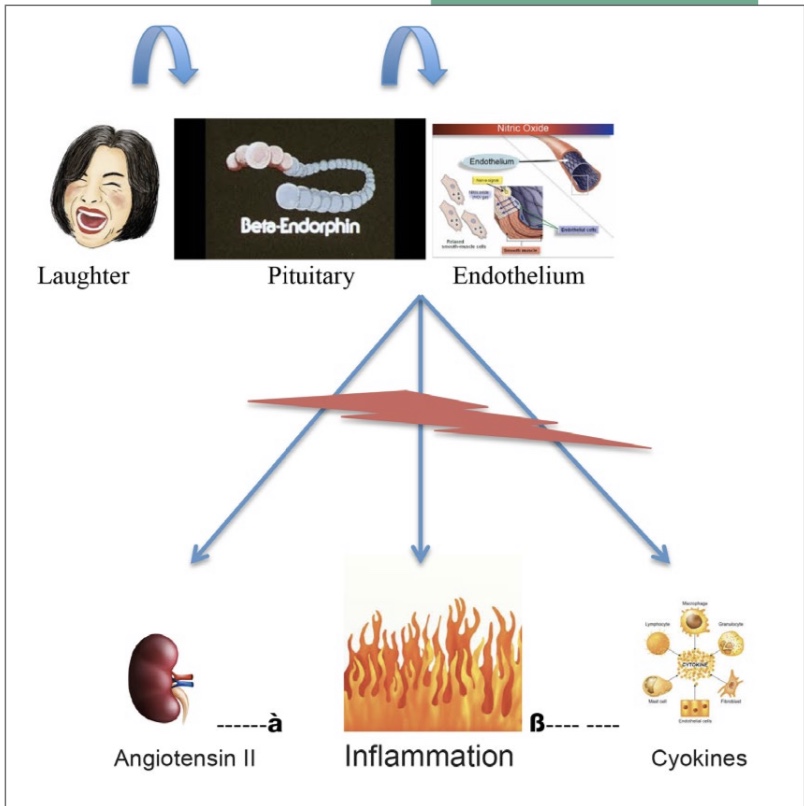
In the current issue of the American Association of Therapeutic Voice AATH (Humor Voice), I was asked to comment on the connection between laughter and suppression of inflammation. To review recent issues of AATH Humor Voice, click here.
In summary, laughter activates a specific region of the brain to release endorphins. These chemicals travel through the bloodstream where they interact with specialized receptors located in the lining of blood vessels (or endothelium) to release nitric oxide. Nitric oxide is a highly celebrated chemical that works wonders for your heart (and overall health), in part by suppressing the release of pro-inflammatory mediators produced by kidneys and white blood cells.
By suppressing inflammation, laughter is among the best natural defenses we have to maintain good health and vitality! Let’s replace the old adage… “take 2 aspirin….with “have a couple of good laughs and call me in the morning!”
Michael Miller, MD is author of the bestselling book “Heal Your Heart: The Positive Emotions Prescription to Prevent & Reverse Heart Disease” & Professor of Cardiovascular Medicine at the University of Maryland School of Medicine in Baltimore, Maryland USA.









